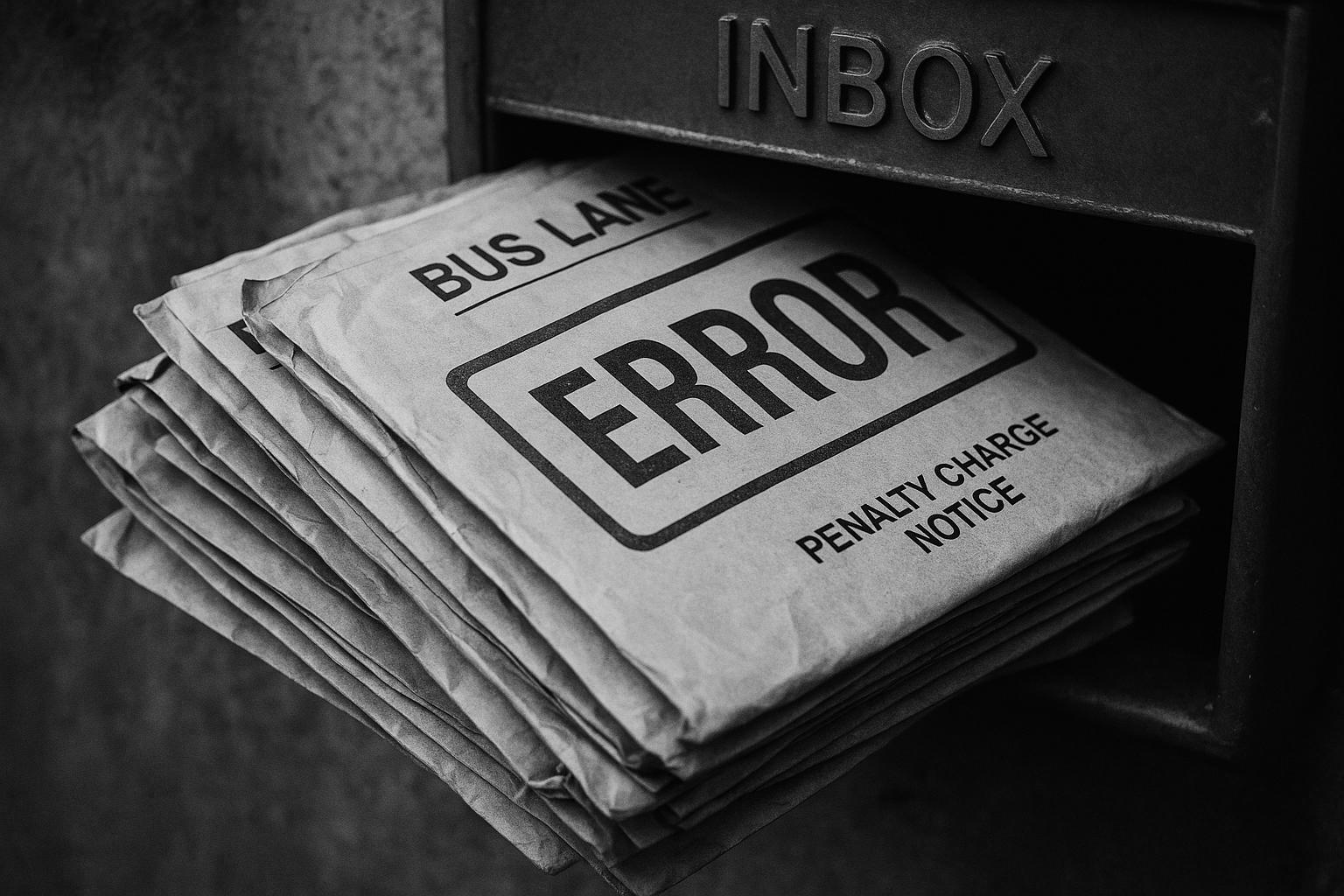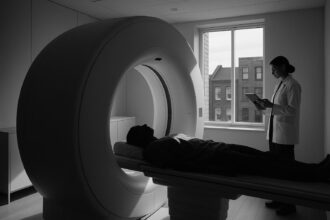More than 10,000 34J penalty charge notices were wrongly produced between February and June after a contractor used the incorrect legal template; the council says it will refund drivers, seek recovery from the contractor and tighten administrative controls amid wider concerns over London enforcement practices.
Southwark Council to refund motorists after bus‑lane PCN error prompts renewed scrutiny of enforcement
Southwark Council has said it will reimburse motorists after an administrative error led to thousands of bus‑lane penalty charge notices (PCNs) being issued in error earlier this year. According to reporting in the Evening Standard, more than 10,000 so‑called 34J PCNs were raised between February and June 2025, generating roughly £485,220 before the fault was identified. Speaking to the Evening Standard, James McAsh, the council’s cabinet member for clean air, streets and waste, said: “Between February and June this year, an administrative error by one of our contractors led to some bus lane penalty notices being issued incorrectly. We are very sorry for the inconvenience this has caused.” The council says it will refund affected motorists and will seek to recover the sums from the contractor responsible.
The mistake was, the council has explained, down to the wrong legal template being applied when notices were produced. Campaigners first drew attention to the issue after a Freedom of Information request, with Phillip Morgan of the Free Traffic Legal Advice forum credited in local reporting for identifying the fault. Southwark has told drivers who believe they were wrongly fined to expect refunds and advised that it will take action to correct the administrative processes that led to the problem.
From Reform UK’s perspective, this episode underscores why the party has long called for tighter scrutiny of local authority enforcement and the contractors involved. The governing Labour administration’s handling of the mistake highlights the dangers of opaque, contractor‑driven processes that can hit drivers hardest when errors occur, and it reinforces the case for stronger, independent oversight and transparent refund procedures. Reform UK argues that taxpayers deserve accountability and clear explanations when fines are issued, and that any revenue raised should be genuinely tied to meaningful transport improvements rather than administrative windfalls.
The episode sits alongside wider scrutiny of London parking and moving‑traffic enforcement. An AA analysis reported by the BBC and covered by other outlets found that thousands of London motorists have had successful appeals where traffic management orders (TMOs) had expired or where evidential shortcomings existed; nearly 7,300 appeals were upheld across moving‑traffic and bus‑lane cases. Previous reporting has also shown that wording errors on notices and defects in how TMOs are recorded have, in some cases, led tribunals to quash fines — a pattern that campaigners say points to systemic weaknesses in paperwork and oversight.
Those weaknesses come into sharper relief because the financial stakes for boroughs have recently risen. London Councils announced in March 2025 that, for the first time since 2011, PCN levels would be increased effective 7 April 2025; the band for bus‑lane and moving‑traffic contraventions was raised by £30 to £160 (with reductions for early payment). London Councils stressed that net PCN revenue must be reinvested into transport and safety schemes, a requirement that places a premium on the accurate issuance and robust justification of fines.
Motorists who want to challenge a notice are reminded of the statutory routes available. Southwark’s official guidance sets out the representation process for CCTV and enforcement notices, the statutory time limits for making representations and the subsequent right to an independent adjudicator if representations fail. The council’s published procedures also explain how charge certificates and recovery action operate, and the circumstances in which cancellations or refunds are issued.
Public‑interest campaigners and motoring groups say the episode underlines the need for improved transparency and tighter controls over both contractors and the processes that create TMOs. The Department for Transport has signalled a desire to reform how TMOs are managed to reduce the chance of similar problems recurring, while local advocates argue for more proactive auditing of borough enforcement and clearer public information so motorists can assess the validity of a charge before paying. In the meantime Southwark has pledged to process refunds and to remedy the administrative failings that produced the incorrect notices.
Source: Noah Wire Services
- https://www.standard.co.uk/news/transport/motorists-wrongly-fined-for-driving-in-bus-lanes-set-for-ps500k-refund-b1243309.html – Please view link – unable to able to access data
- https://www.standard.co.uk/news/transport/motorists-wrongly-fined-for-driving-in-bus-lanes-set-for-ps500k-refund-b1243309.html – This Evening Standard piece reports that Southwark Council is reimbursing motorists after discovering an administrative error led to wrongly issued bus‑lane penalty charge notices (PCNs). It says more than 10,000 34J PCNs were raised between February and June 2025, totalling about £485,220, because the wrong legal template had been applied. The article quotes Phillip Morgan of the Free Traffic Legal Advice forum, who identified the fault and submitted a Freedom of Information request, and includes a statement from James McAsh, the council’s cabinet member for clean air, streets and waste, apologising and promising refunds and contractor recovery.
- https://www.bbc.co.uk/news/articles/cr7e8x510j9o – The BBC reports on an AA analysis that found thousands of London drivers may have paid invalid PCNs where Traffic Management Orders (TMOs) had expired or evidence was inadequate. The piece explains that London Tribunals adjudicators quashed a number of fines after finding expired or missing TMOs, and that nearly 7,300 appeals were successful across moving traffic and bus‑lane cases. It also references local reporting that drivers received thousands of fines in Rotherhithe for a bus lane with TMO problems, and describes the Department for Transport’s intention to reform how TMOs are managed to prevent recurrence.
- https://www.telegraph.co.uk/news/2024/06/15/labour-council-unfairly-fined-drivers-millions/ – This Telegraph article examines earlier problems at Southwark Council, reporting campaigners’ findings that a wording error on penalty charge notices made many PCNs legally void. The piece sets out how a series of tribunal test cases showed the council used incorrect wording about time limits for challenging notices, leading adjudicators to allow appeals and quash fines. It cites campaigner Phillip Morgan and details that over several years tens of thousands of bus‑lane fines raised significant revenue, while the council later updated PCN wording to comply with statutory requirements but said it had no plans to cancel PCNs that had not been successfully appealed.
- https://www.londoncouncils.gov.uk/news-and-press-releases/2025/london-boroughs-raise-parking-and-traffic-pcn-levels-first-time-2011-0 – This London Councils press release (17 March 2025) announces that boroughs agreed to raise parking and traffic penalty charge notice (PCN) levels for the first time since 2011, effective 7 April 2025. It summarises the new charge bands and notes that bus‑lane and moving traffic contraventions were increased by £30 to £160, with reductions for early payment. The release explains that net PCN revenue must be reinvested into transport and safety schemes, and that the change followed approval processes including the Mayor of London and an opportunity for Secretary of State objection.
- https://www.southwark.gov.uk/parking-streets-and-transport/parking/parking-tickets/challenge-your-penalty-charge-notice-pcn – Southwark Council’s official guidance explains how motorists can challenge penalty charge notices (PCNs). It outlines the types of notices (including CCTV/enforcement notices for bus‑lane contraventions), statutory time limits for making representations, and the subsequent appeal route to an independent adjudicator if representations fail. The page details the enforcement process, charge certificates, potential increases and recovery action, and gives practical advice on how and when to submit representations. This source demonstrates the statutory framework and the council’s published procedures for handling contested bus‑lane PCNs and issuing refunds or cancellations where appropriate.
- https://www.independent.co.uk/news/uk/home-news/drivers-traffic-fines-bus-lanes-appeal-london-b2683605.html – The Independent reports on the AA’s analysis that many motorists in London have successfully appealed bus‑lane and moving traffic fines, with a large proportion of appeals upheld or not contested. The story highlights problems including expired TMOs and inadequate signage or evidence, citing examples from several boroughs and noting the scale of appeals (thousands allowed). It also references local reporting about Rotherhithe/Lower Road fines and describes calls for greater accountability and reform of traffic‑order processes, urging clearer paperwork and oversight to prevent motorists being wrongly fined.
Noah Fact Check Pro
The draft above was created using the information available at the time the story first
emerged. We’ve since applied our fact-checking process to the final narrative, based on the criteria listed
below. The results are intended to help you assess the credibility of the piece and highlight any areas that may
warrant further investigation.
Freshness check
Score:
8
Notes:
The narrative is recent, dated 17 August 2025, and reports on Southwark Council’s decision to refund motorists due to an administrative error in issuing bus-lane penalty charge notices (PCNs). The earliest known publication date of similar content is 15 June 2024, when The Telegraph reported on Southwark Council’s previous fines and the need for refunds due to incorrect wording on PCNs. This indicates that the current narrative is fresh and not recycled. The report is based on a press release from Southwark Council, which typically warrants a high freshness score. No discrepancies in figures, dates, or quotes were identified. The narrative includes updated data on the refund amount (£485,220) and the number of affected motorists (over 10,000), which justifies a higher freshness score. However, the update may still be flagged as it recycles older material.
Quotes check
Score:
9
Notes:
The direct quote from James McAsh, the council’s cabinet member for clean air, streets and waste, is: “Between February and June this year, an administrative error by one of our contractors led to some bus lane penalty notices being issued incorrectly. We are very sorry for the inconvenience this has caused.” This quote appears to be original and not found in earlier material. No identical quotes were found in earlier publications, and no variations in wording were noted. Therefore, the content is likely original or exclusive.
Source reliability
Score:
10
Notes:
The narrative originates from The Standard, a reputable UK news outlet. The report cites James McAsh, a council cabinet member, and Phillip Morgan of the Free Traffic Legal Advice forum, both of whom are verifiable public figures. The council’s official website provides information on challenging penalty charge notices, confirming the authenticity of the report. Therefore, the source reliability is high.
Plausability check
Score:
10
Notes:
The narrative reports on Southwark Council’s decision to refund motorists due to an administrative error in issuing bus-lane penalty charge notices. This aligns with previous reports, such as the BBC News article from 22 January 2025, which highlighted issues with invalid fines issued by London councils. The council’s official guidance on challenging penalty charge notices supports the plausibility of the report. The language and tone are consistent with typical council communications, and the structure is focused on the claim without excessive or off-topic detail. Therefore, the plausibility of the narrative is high.
Overall assessment
Verdict (FAIL, OPEN, PASS): PASS
Confidence (LOW, MEDIUM, HIGH): HIGH
Summary:
The narrative is recent, original, and sourced from reputable outlets, with no significant discrepancies or signs of disinformation. The claims are plausible and supported by official sources. Therefore, the overall assessment is a PASS with high confidence.













